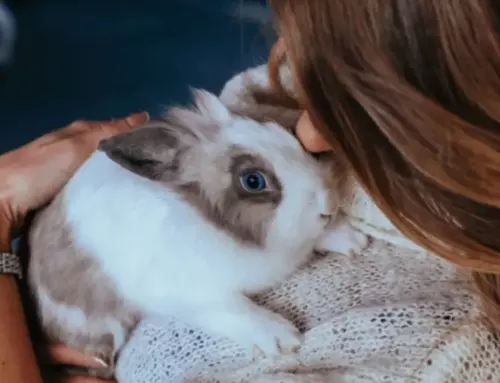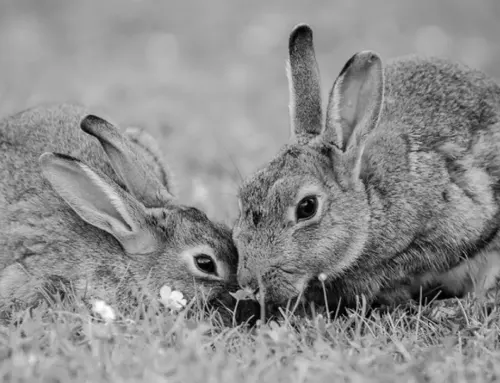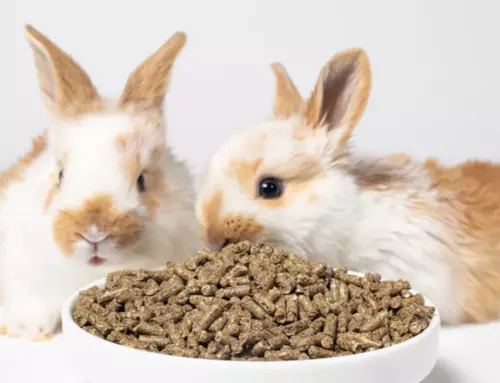If you’re thinking of getting a rabbit, “What do rabbits generally eat?” is a crucial question to ask. This may seem like an easy question on the surface, but without the right food, the rabbit won’t be healthy and won’t live very long.
Really, what do bunnies eat need more than just carrots to survive? They need more than that in order to function properly. In addition to assisting with this inquiry, we can also assist you in answering many others. Here, we’ll go through the fundamentals of rabbit nutrition, including basic dietary requirements, suggested treats, and safe, nutritious vegetables and fruits.
What can Rabbits Eat?
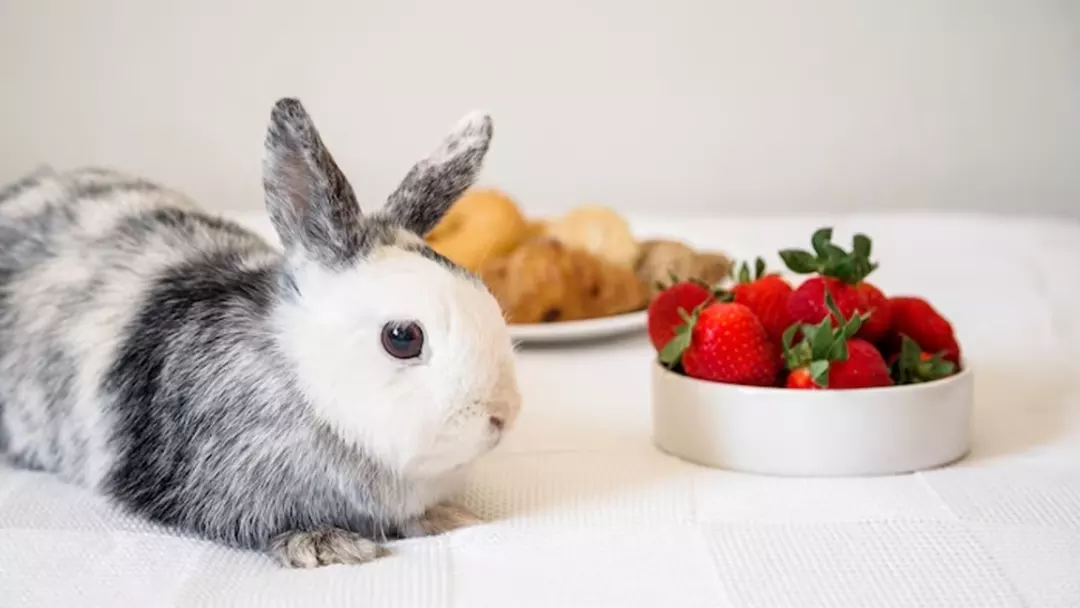
Giving your rabbit the minerals and nutrients it needs to live a long and healthy life is as simple as feeding it a balanced diet. Keep reading to learn more about the ideal, risk-free, and essential diet for your rabbit as a pet. Providing hay, pellets, an endless supply of clean water, and the odd treat is the ideal recipe to follow. Your rabbit’s health will improve as a result of this. For more information, please review the sections below.
Hay (Dried Grass)
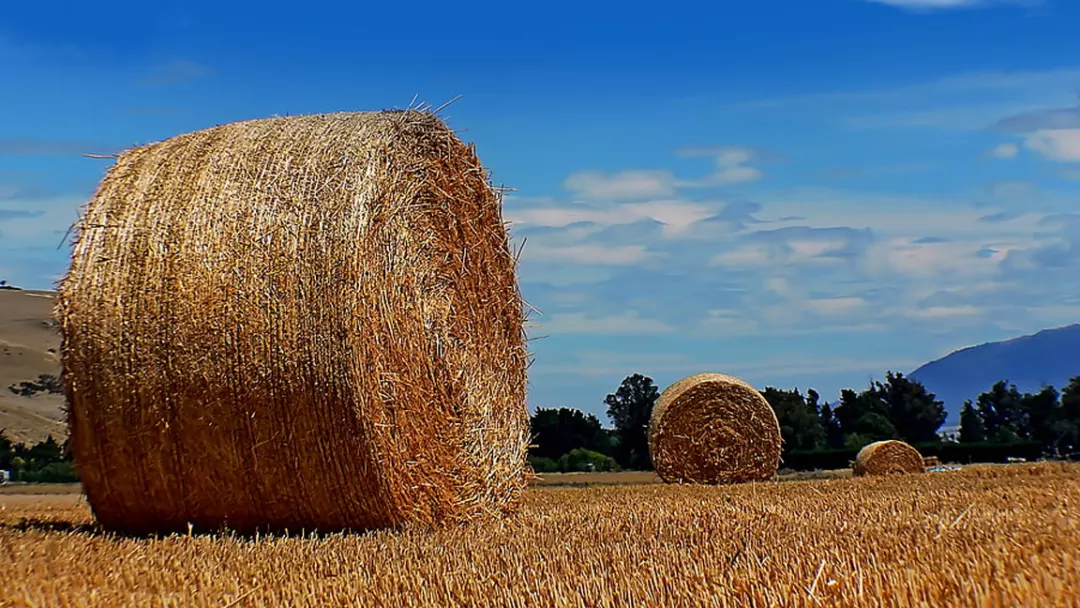
Adult rabbits can be fed a variety of hay types, including alfalfa and alfalfa-timothy mixes, timothy, grass, and grain. However, adult rabbits shouldn’t be fed too much of the alfalfa or alfalfa mix varieties because of their high-calorie content, which can lead to obesity and poor health. Make sure the hay you use is clean, dry, and mold-free at all times. Hay is an excellent source of raw, natural fibre, which is essential for your rabbit’s digestive health. Hay chewing also aids in the development of strong, healthy teeth.
It’s important to remember that when feeding your rabbit hay, you should suspend the hay above the ground, or “hang” it. Without proper ventilation, the hay could become moist and contaminated with urine and excrement. Once infected in this way, it can create problems in your rabbit’s gastrointestinal tract. Keep it off the floor of the cage, please. Your friend will appreciate you taking precautions to ensure their safety. Some rabbit owners put hay racks next to litre pans to encourage their pets to use the litter box.
Check out our piece for tips on buying quality hay for your rabbit.
Hay should be stored in a dry, airtight container that prevents mould growth and provides protection from rats, birds, and insects. In order to save money, it is recommended to purchase hay in large quantities from nearby farmers. You may save money and rest assured that your hay is pesticide-free if you follow these steps. Rabbits shouldn’t be fed hay that has changed color or smells bad.
Vegetables: A Rabbit’s Favorite Foods
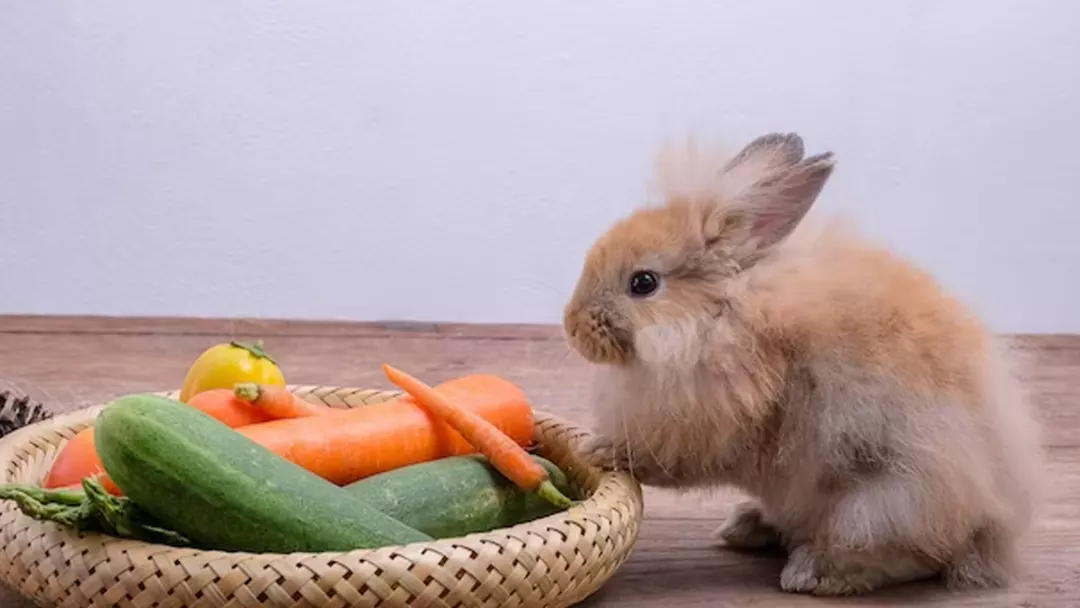
Best food for rabbits vegetables, especially clean and fresh ones, should be provided. Be cautious while introducing any new cuisine, though. Make sure everything you offer your rabbit is safe, and start with very little amount until you learn how his or her body reacts to specific foods. Keep the number of new things you introduce to your furry friend to a minimum, since doing so will save you time and energy in the event that even one of the things proves to be problematic.
To view our list of risk-free vegetables, please scroll down.
Introducing new foods too quickly to a rabbit might cause gastrointestinal distress, especially if the rabbit is younger than 6 months old. Vegetables and herbs are among rabbits’ favourite foods. With a few notable exceptions, most store greens are fine for rabbits to eat. (Check out the foods to stay away from down below.)
Around two cups a day of fresh veggies is the maximum amount that should be fed to an adult rabbit. When it comes to fresh vegetables, dwarf breeds and rabbits under five pounds need only one cup each day. Two or three different vegetables make a good selection. Due to their sensitive digestive systems, rabbits should be introduced to new vegetables gradually. Depending on the type, some vegetables can be served on a daily basis, while others should be fed only sometimes (once or twice a week).
You shouldn’t give your rabbit any of these: potatoes, maize, beans, seeds, or nuts. When fed to a rabbit, these items can induce a variety of stomach issues.
Bell peppers, Bok choy, Brussels sprouts, Carrot tops, Cucumber, Endive, Escarole, Fennel, Herbs: basil, cilantro, dill, mint, oregano, parsley, rosemary, sage, thyme, Lettuces: romaine, green leaf, red leaf, Boston bibb, arugula, butter, and romaine. Zucchini, watercress, wheatgrass, and okra leaves
Vegetables and plants that should be given to a rabbit in moderation (once or twice a week):
Flowers: calendula, chamomile, daylily, dianthus, English daisy, hibiscus, honeysuckle, marigold, nasturtium, pansy, rose; vegetables: broccoli (stems and leaves only); carrots; chard; clover; collard greens; dandelion greens (pesticide-free).
Unlimited Supply of Water
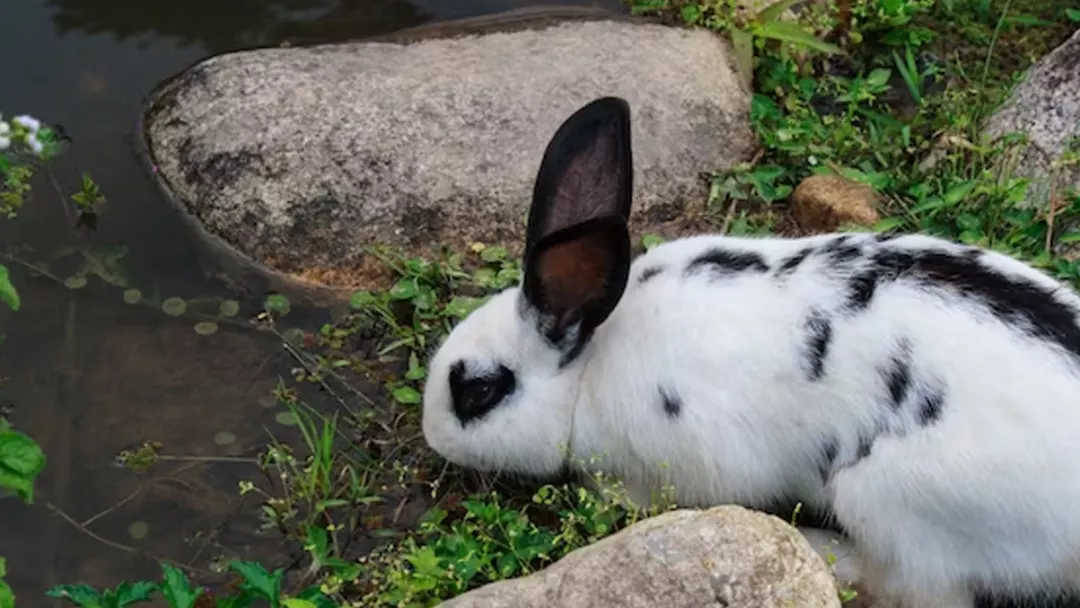
There must always be access to clean water. Rabbits can drink from either a water bottle or a water bowl, so either will do. Although it may be tempting to cool off your bunny on a hot day, you should avoid doing so. That could give your rabbit stomach problems or perhaps send it into shock. If they don’t seem to be drinking much on their own, offering a handful of wet veggies is a good alternative. There’s also the option of fortifying the water with electrolytes, vitamins, or even Infants’ Pedialyte.
Pellets (High Fibre, Protein)
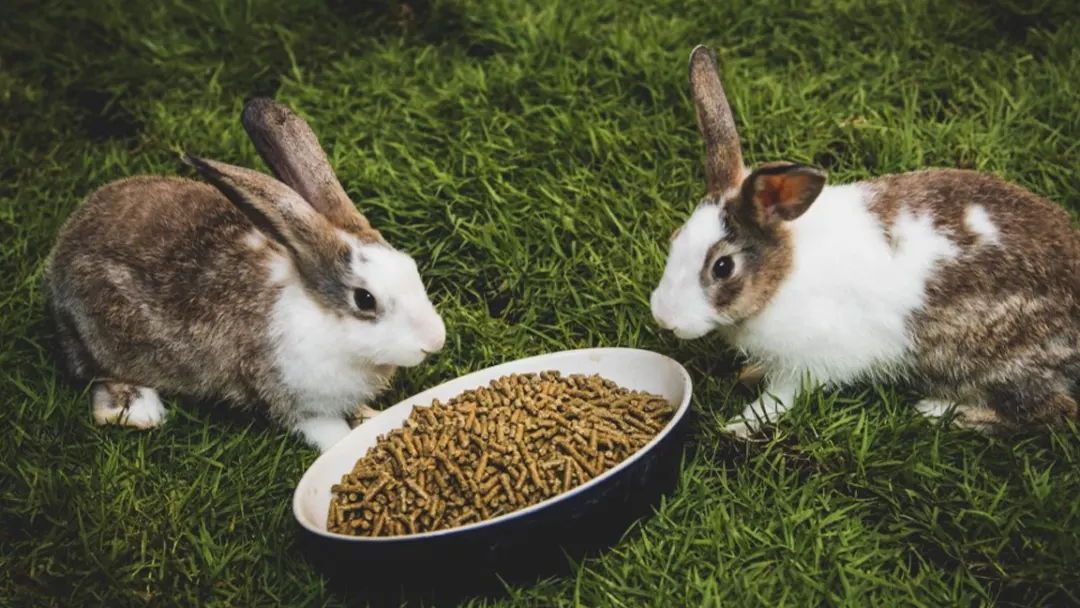
Bunnies are picky eaters and won’t eat old pellets, so always double-check the manufacturing date on the bag you buy pellets from. If you want high-fiber pellets, look for ones that are green or greenish-brown in hue. Moreover, observe the level of dust and particles in the bag, as this material might trigger respiratory problems. As your rabbit gets older, you’ll have to reduce the number of pellets she eats. High-calorie rabbit pellets have been linked to weight gain and other health problems.
The greatest pellets for feeding are those that are both high in fibre and protein. Pellets that have been “improved” by adding colorful pieces or “treats” should not be given. Nuggets like that usually have no nutritional benefit, so buying them is a waste of money. Not understanding what those tiny pieces are might also cause stomach problems for your rabbit.
Occasional Treats
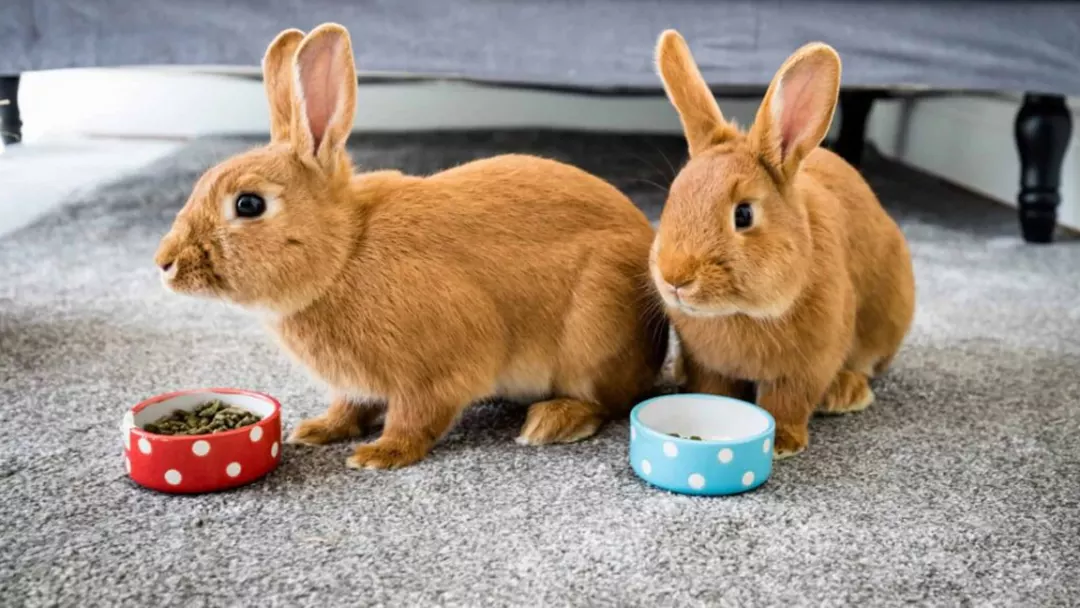
The health of your rabbit will benefit from the occasional treat, but remember that bunnies aren’t humans and shouldn’t be treated like one. The grain-based product lines, such as whole-wheat, or whole-grain breads, and such cereals as Sugar Free, Unfrosted Mini-Wheat, are OK to provide as an occasional treat, in restricted amounts.
But pasta and pastries are strictly off limits. Nevertheless, many of the “cute shapes and colours” rabbit snacks available at pet stores are actually heavy in fat and sugar, such yoghurt chips. It’s not the “greatest idea” to consume those things on a regular basis. Never, ever feed your rabbit chocolate, as it is highly toxic to bunnies.
Fruit: Give to a Bunny Once or Twice Per Week
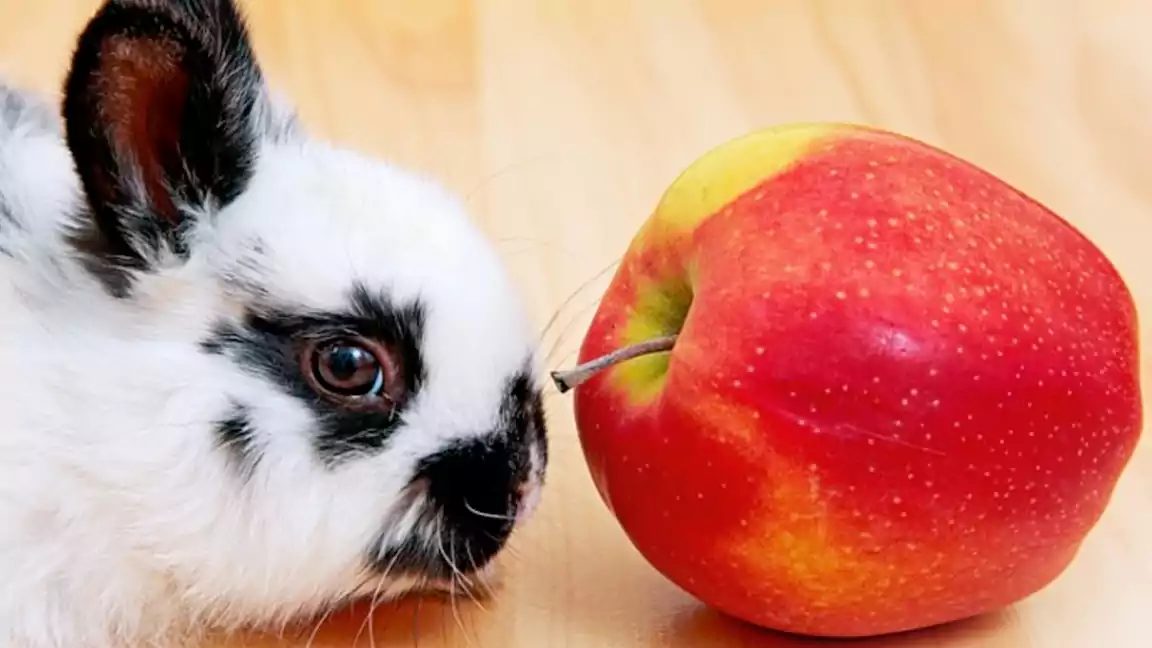
Feeding your rabbit fruit only once or twice weekly is fine. One to two teaspoons of fruit (any variety or a combination) per five pounds of body weight is the recommended amount. Much like with veggies, introducing new fruits should be done gradually and singly.
How often (once or twice weekly) you should give your rabbit fruit:
(De-seeded) Apple, Blueberries, blackberries, strawberries, raspberries, cranberries, cherries (without pits), grapes, melons, nectarines, oranges, papayas, pears, plums, pineapples, and watermelons.
Treats: Feed to a Rabbit Sparingly
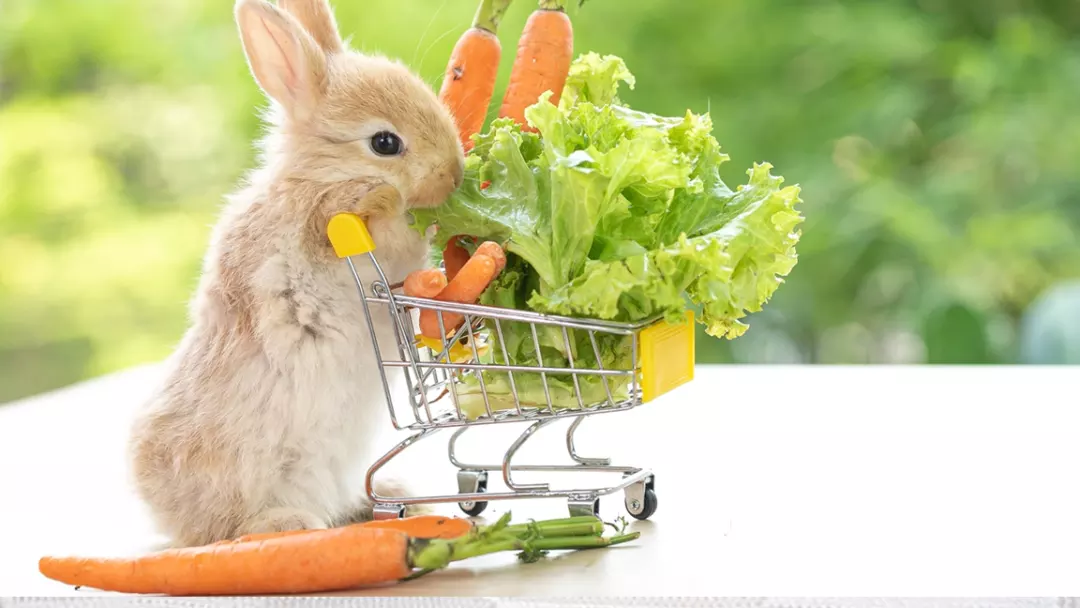
It’s no secret that many bunnies, like many humans, have a serious craving for sugary treats. Treats, which sit atop the bunny equivalent of the human food pyramid, should be given sparingly. Little pieces of fresh or freeze-dried fruit (the allowed fruits listed above), natural, unprocessed mixes that contain hay and dried flowers (the approved flowers listed above), and rabbit treats by the Oxbow brand are all good options for rewarding your pet rabbit with a nutritious snack.
Not all snacks available for purchase are suitable for rabbits, thus it is important to check the label. Never feed your rabbit human snacks, and never give treats that have extra sugar, preservatives, or artificial coloring.
Foods to Avoid Giving a Rabbit
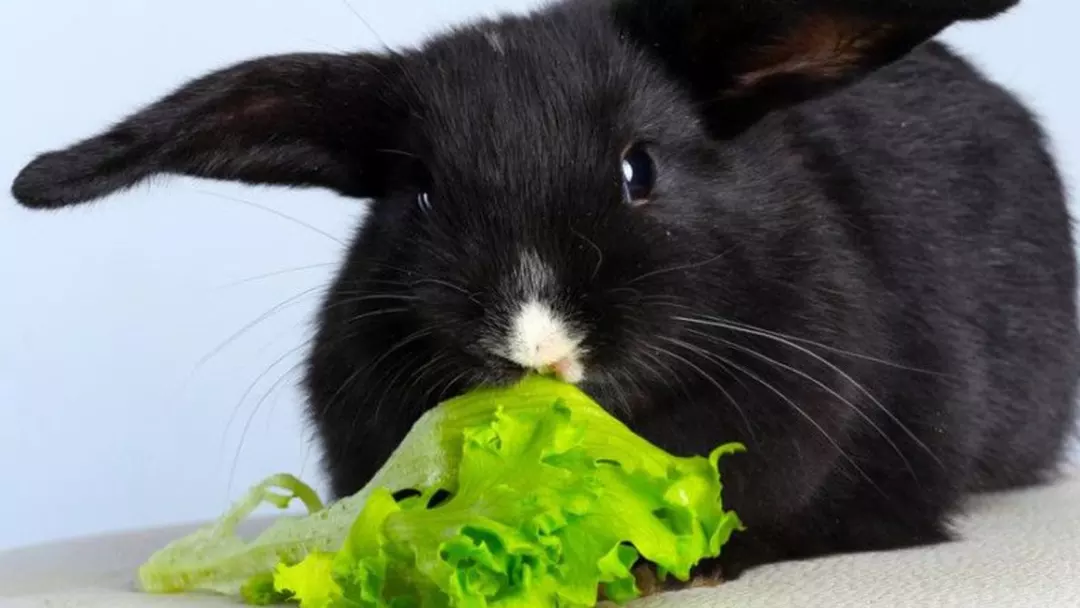
When fed to rabbits, certain foods might induce severe illness. Here are some things you should never, ever feed your rabbit. Beans, beet greens, cabbage, cauliflower, cereal, chocolate, corn, corn cobs, crackers, iceberg lettuce, legumes, mustard greens, nuts, pasta, peas, potatoes, rhubarb, seeds, sugar, turnip greens, yogurt.
What to Feed Wild Rabbits?
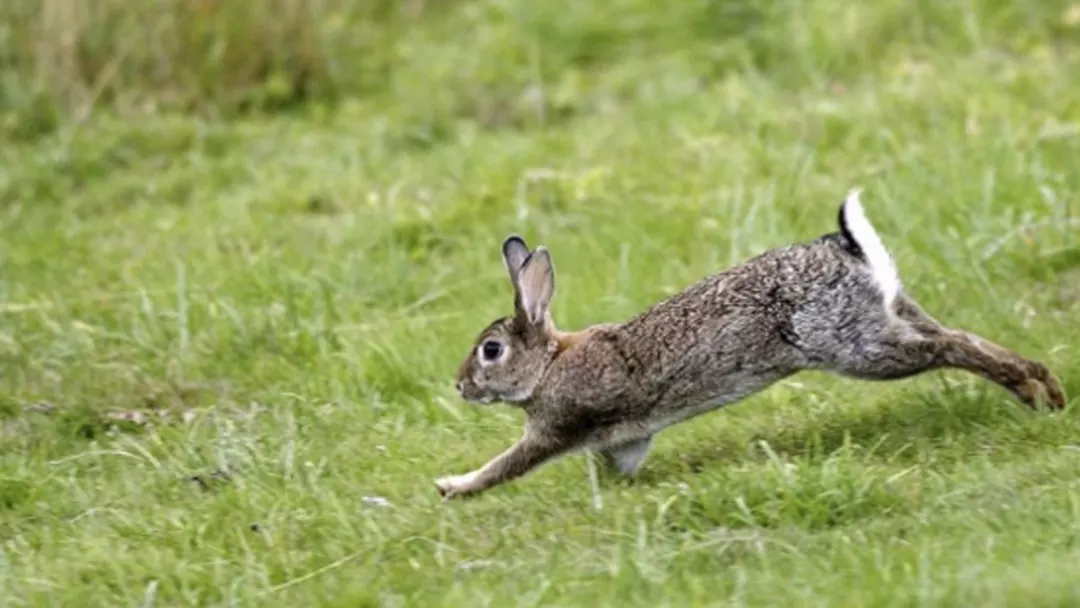
Wild rabbits should not be fed because they have evolved to eat a specialized diet. The best way to help wild rabbits survive is to provide a natural habitat with plenty of greenery and water. Native plants like clover, dandelion and other rabbit-friendly greens will attract wild rabbits to your yard. Instead of feeding a sick or injured wild rabbit, call a wildlife rehabilitation center or local animal control department.
Hunting is in the rabbit’s nature. Almost any plant material they come across is fair game for them. Grass and other tasty leafy plants they can forage in the wild, such as clover and wildflowers, will make up the bulk of this for the vast majority of the year. While there are a number of plants and blooms that rabbits should avoid, on the whole, their digestive tract is well-suited to processing plant matter, making them a better plant-eating option than many other, more strictly carnivorous animals. This means that wild rabbits can get the vitamins and minerals they need by eating a wide range of plants found in their natural habitat.
Should I Stick to the Same Food Throughout a Rabbit’s Life?
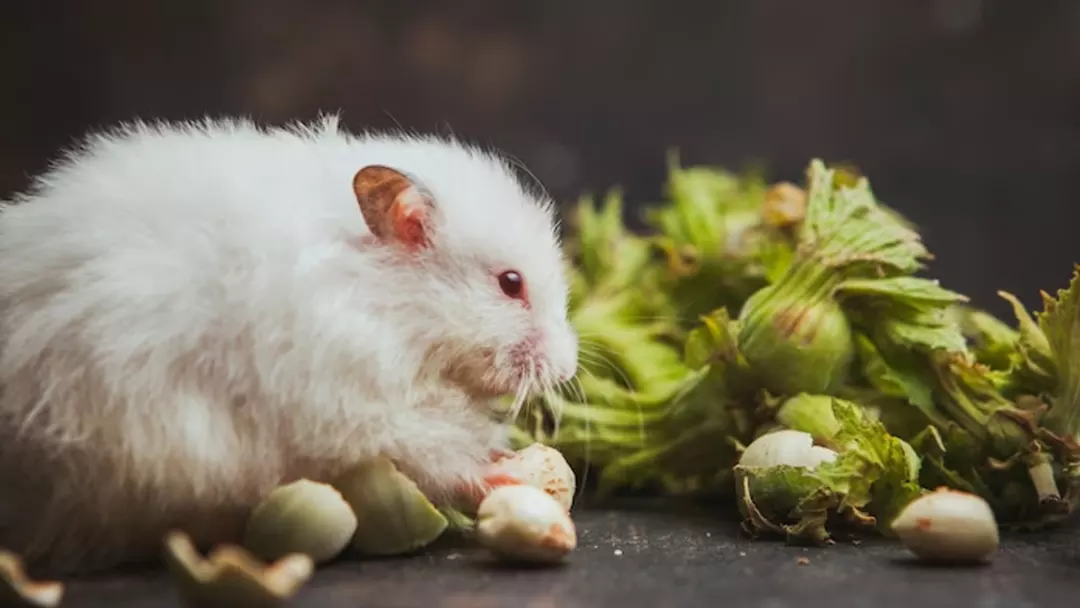
The nutritional requirements of rabbits remain constant throughout their lives, unlike those of canines and felines, so you won’t have to worry about feeding them anything different as they get older. There must be an endless supply of hay and grass available to them, along with a steady supply of new fruits and vegetables and premium pellets. But, as they age, many rabbits slow down and may only need half as much food as they did when they were younger. See your veterinarian for specific care instructions for your rabbit.

